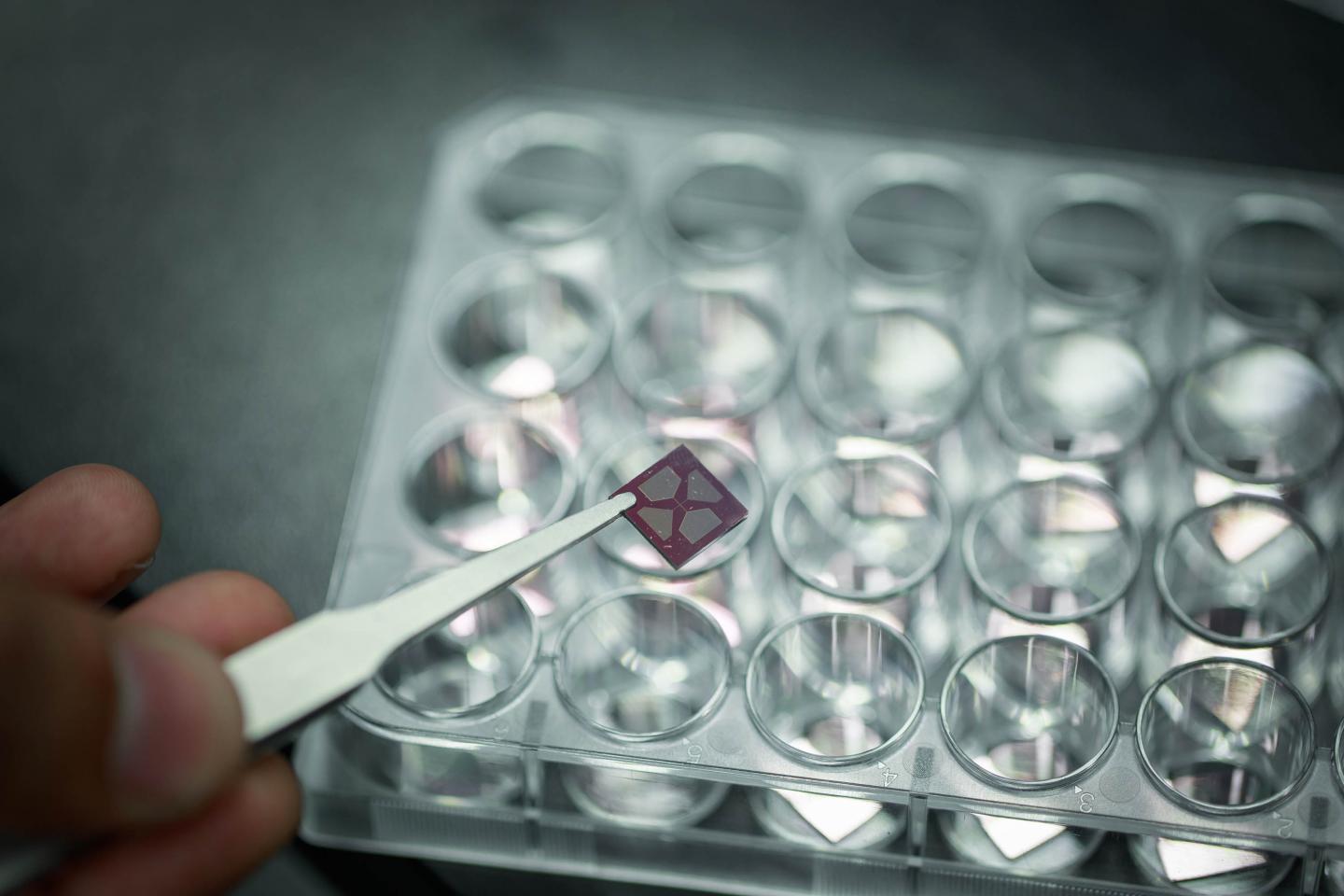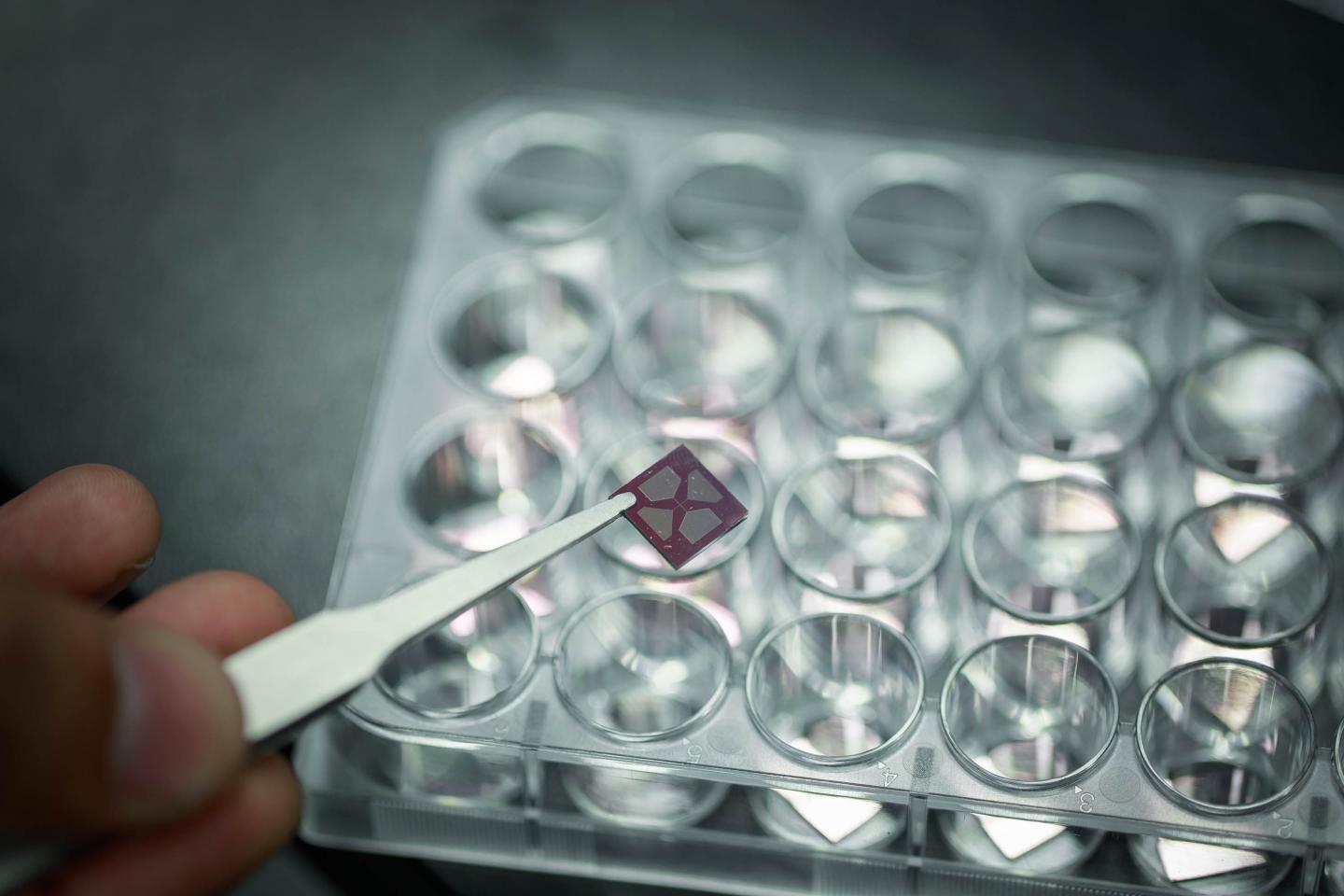
Credit: UNIST
Heart disease is the leading cause of death for both men and women. Therefore, a fast and reliable diagnosis of heart attack is urgently needed.
A new study, led by Prof. Jaesung Jang (School of Mechanical and Nuclear Engineering) has developed an electrical immunosensor to detect the acute myocardial infarction, also known as a heart attack within a minute. The system works by measuring the level of cardiac troponin I (cTnI), a protein that is excreted by the heart muscle into the blood following a heart attack.
Prof. Jang states, "This new immunosensor is constructed in a different way than any other sensor." He adds, "Owing to the new design of this immunosensor, this device is able to rapidly diagnose the level of heart attacks at the point of care."
A schematic diagram of the SWCNT electrical immunosensor with two pairs of concentration and detection electrodes.A schematic diagram of the SWCNT electrical immunosensor with two pairs of concentration and detection electrodes.
Using just a single droplet of blood, this immunosensor detects the target protein present in the blood serum following a heart attack and provides a result in 1 minute.
In the study, dielectrophoretic (DEP) forces have been applied to attract the target protein. The incubation time required for the detection is decreased through DEP-mediated biomarker concentration, in which the target protein is attracted onto the sensing areas via electrical forces. Therefore, the dielectrophoretic concentration of cTnI reduced the incubation time required from 60 min to 1 min.
Chang-Ho Han (School of Mechanical and Nuclear Engineering), a combined master's-doctoral student in Prof. Jang's group notes, "The level of cTnI within a single droplet of blood serum is not great." He continues, "However, we were able to attract the target protein onto the sensing areas via electrical forces, thereby greatly improvingdetection time and detection limit."
Image shown above is the core material used for the new sensor detects proteins in the blood stream following a heart attack, providing results in just 10 minutes.Image shown above is the core material used for the new immunosensor that detects proteins in the blood stream following a heart attack, providing results in just 1 minute.
According to the research team, this novel immunosensor holds considerable potential for use as a platform for sensing distinct types of proteins, along with the feasibility of miniaturization and integration for biomedical diagnosis.
The findings of the research have been published in the August issue of the prestigious biotechnology journal Biosensors & Bioelectronics.
###
This work has been supported by Basic Science Research Program through the National Research Foundation of Korea (NRF) funded by the Ministry of Education and by the 2016 Research Fund of UNIST.
Journal Reference: Abhinav Sharma, Chang-Ho Han, and Jaesung Jang, "Rapid electrical immunoassay of the cardiac biomarker troponin I through dielectrophoretic concentration using imbedded electrodes." Biosensors and Bioelectronics, 2016.
Media Contact
JooHyeon Heo
[email protected]
82-522-171-223
############
Story Source: Materials provided by Scienmag





